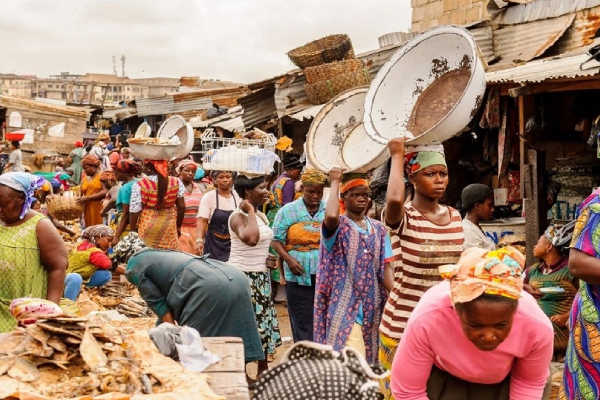The 2022 Multidimensional Poverty Index Survey released by the National Bureau of Statistics says that 130 million Nigerians are poor.
The National Bureau of Statistics says this figure represents 63 per cent of the nation’s population.
It added that the poverty index is mostly experienced in rural areas especially in the north with women and children being the most affected.
[wonderplugin_video iframe=”https://youtu.be/b6OUV-BnXoQ” lightbox=0 lightboxsize=1 lightboxwidth=960 lightboxheight=540 autoopen=0 autoopendelay=0 autoclose=0 lightboxtitle=”” lightboxgroup=”” lightboxshownavigation=0 showimage=”” lightboxoptions=”” videowidth=600 videoheight=400 keepaspectratio=1 autoplay=0 loop=0 videocss=”position:relative;display:block;background-color:#000;overflow:hidden;max-width:100%;margin:0 auto;” playbutton=”https://www.tvcnews.tv/wp-content/plugins/wonderplugin-video-embed/engine/playvideo-64-64-0.png”]
The survey was conducted by the NBS, the National Social Safety-Nets Coordinating Office (NASSCO), the United Nations Development Programme (UNDP), the United Nations Children’s Fund (UNICEF), and the Oxford Poverty and Human Development Initiative (OPHI).
It was gathered that the measure used to calculate the figure was based on Multidimensional Poverty Index (MPI) with five components of health, living standard, education, security, and unemployment.
According to the survey, over 50 per cent of children across the country are affected by poverty.
In his remarks, the Statistician-General of the Federation, Mr Adeyemi Adeniran, noted that 56,610 households were surveyed and areas such as health, education, living standards, food security, water reliability, underemployment, security shocks, and school attendance were considered.
While the multidimensional poverty index stood at 27 per cent in Ondo State, the figure is estimated at 90 percent in Sokoto state.





